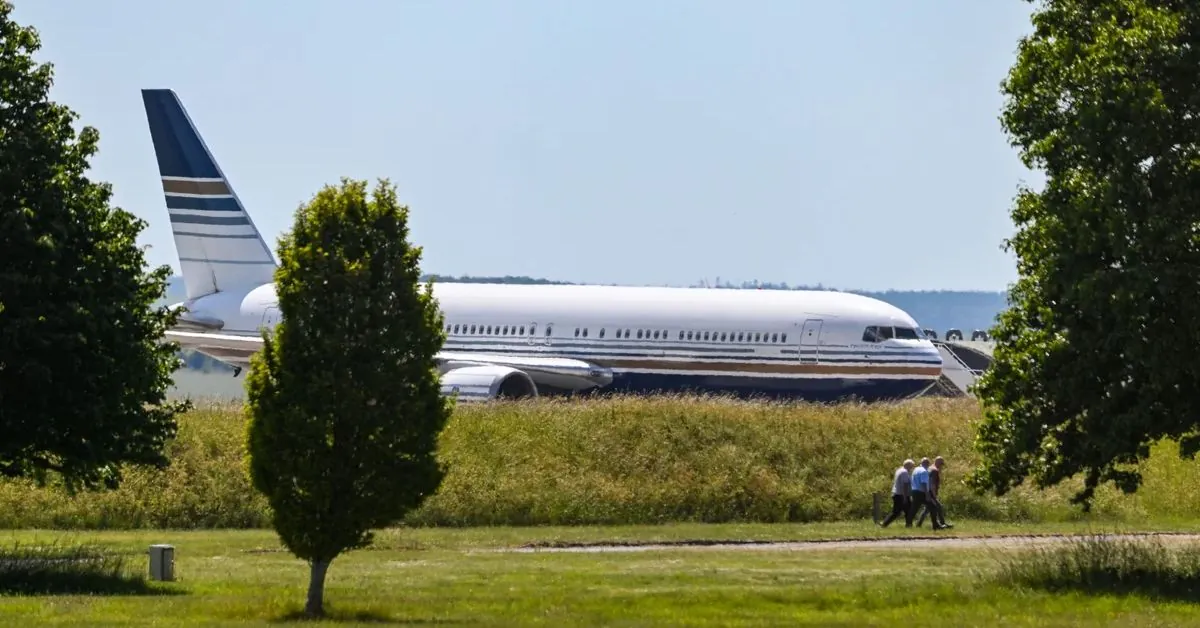According to the Observer, the Labour government has secretly removed more than 600 Brazilians, including 109 children, from the UK on three of the largest Home Office deportation charter aircraft in history.
The Home Office has never deported such a large number of nationalities on individual deportation charter flights. The removal of children from these aircraft is believed to be unprecedented.
The Observer obtained freedom of information data indicating that three flights took place on August 9th, evacuating 205 people, including 43 children; on August 23rd, removing 206 people, including 30 children; and on September 27th, removing 218 people, including 36 children. Many of the deported children were part of family units, likely settled at school and spending the majority, if not all, of their childhood in the United Kingdom.
We deemed the returns voluntary and anticipated individuals who had overstayed their visas. The Home Office provides rewards of up to £3,000 for voluntary repatriation, including newborns and children. Once passengers arrive in their home country, they can activate the pre-loaded cards that deliver the sweeteners.
The government is eager to highlight its deportation record, with numbers released on Thursday showing 8,308 enforced and voluntary returns between July and September 2024, a 16% rise over the same period last year. The bulk, 6,247, were voluntary returns, which represented a 12% increase over the same period in 2023. While the administration is eager to publicize the numbers returned, it has omitted to disclose that the destination of these historic deportation planes was Brazil.
Latin American rights organizations have expressed concern about the Home Office’s ability to covertly relocate a significant number of individuals of a single nationality, including an unprecedented number of school-age children, out of the country.
The Coalition of Latin Americans in the UK raised concern about the hundreds of secret deportations: “We are disturbed by the substantial increase in voluntary returns of Brazilians in the last year. As the largest Latin American community in the United Kingdom, Brazilians suffer considerable difficulties receiving high-quality information and qualified legal assistance, particularly in their own language. Many Brazilians came to the UK as part of onward migration from other EU countries. However, post-Brexit immigration law changes have put hundreds of them and their non-EU family members at risk of losing their rights due to disinformation and stringent eligibility requirements.” The coalition cautioned that Brazilian women, particularly those experiencing gender-based violence, are especially vulnerable to the Home Office’s initiative to remove Brazilians from the UK in large numbers.
“These women are often trapped by abusive partners who use their British or EU passports as tools of control, leaving them with no viable path to safety or settlement,” they say.
Latin American Women’s Aid provided assistance to a woman in one situation. She and her two sons, one disabled and requiring special education, were fleeing violence. They had to relocate between three hotels. The Migrant Victim of Domestic Abuse Concession, which allows migrant victims of domestic violence to remain in the UK, denied the woman’s request, forcing her to return to Brazil.
It is unclear how many persons on the three aircraft refused to return to Brazil owing to safety concerns but felt compelled to board the planes.
“The government must respond to our requests for fair, affordable and safe routes toward citizenship and settlement for the many communities who have laid down roots in this country,” coalition members said.
A Home Office spokesperson said: “We are already delivering on our plan to ramp up removal of those with no right to be in the UK, with removals of foreign offenders and failed asylum seekers at their highest level in half a decade … “This will reduce our reliance on hotels and costs of accommodation, saving an estimated £4bn over the next two years.”











Leave a Reply